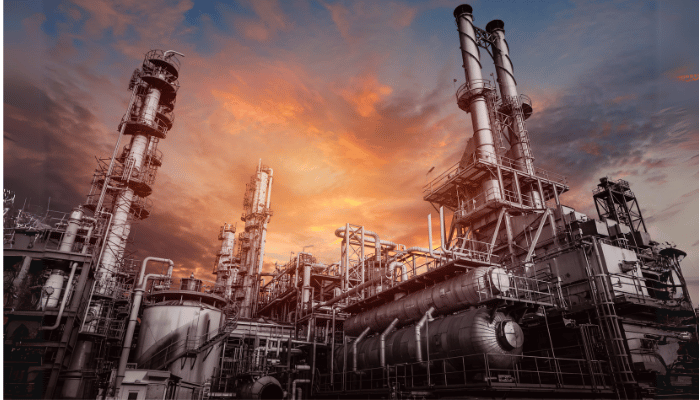Fixed equipment and pressure vessels play a vital role in various industries. These equipments are used to maintain and manage liquids and gases under pressure and are used in the transfer, storage and processing of various materials. This article examines the importance of fixed equipment and pressure vessels in various industries, their types and applications.
Definition of fixed equipment and pressure vessels
Fixed equipment and pressure vessels are things that are used to store and manage liquids, gases or a combination of them under pressure. This equipment includes liquid storage tanks, reactors, converters, heat exchangers and other similar equipment. Among them are fixed equipment and ordinary passing pressure tanks and thermosiphon pressure tanks, boilers and heat exchangers.
The importance of fixed equipment and pressure vessels
Storage and maintenance of liquids: fixed equipment and pressure tanks act as a means of storage and maintenance of various liquids such as water, oil, gases and chemicals. This storage is done in a safe and controlled manner.
Material processing: Fixed equipment is used in material processing processes such as water treatment, electricity generation, chemical and petrochemical products production. These equipments play an essential role in the productivity and quality of the processes.
Protecting the environment and people: the correct operation of fixed equipment and pressure vessels is very important. Control and protection equipment are used in this equipment to prevent accidents and gas leaks.
Geothermal applications and renewable energies: In the production of energy from geothermal sources and renewable energies, fixed equipment is used as part of the energy conversion process. These equipments help the productivity and effectiveness of the processes.
Oil and gas industries: fixed equipment and pressure vessels are of special importance in oil and gas industries. Storage of crude oil, natural gas and refining processes require different equipment.
All types of fixed equipment and pressure vessels
Storage tanks: These tanks are used horizontally or vertically to store liquids. They can be made of different materials such as metal or plastic.
Reactors: Reactors are used in chemical processes and production of chemicals. They are designed to carry out chemical reactions under specific conditions.
Converters: Converters transfer energy from one process to another. These equipments include thermal and mechanical converters.
Boilers: Boilers are used to produce steam and are used in various industries such as power plants and processing industries.
Choose between types of tanks
There are many different types of fixed equipment and pressure vessels, and choosing the most suitable type of vessel depends on the characteristics and needs of each specific industry and process. In this section, we will examine the types of pressure tanks and the important points that should be considered in their selection.
Types of pressure vessels
Metal tanks: Tanks made of metals such as steel are very popular. Due to their high resistance to pressure and heat, these tanks are used in various industries such as oil and gas, petrochemical and energy production. Also, the rustproofness of many types of steel ensures the avoidance of rust in the tank structure. Among these tanks, we can refer to the spherical tank and the cylindrical tank.
Plastic tanks: among other types of tanks are plastic tanks. These types of tanks are made of resistant plastics in different ways and are usually used to store non-corrosive liquids. The advantages of plastic tanks include lighter weight and easier installation.
Special repositories: In some cases, we need special and custom repositories. These tanks are produced for specific processes and may be made of different materials such as fiberglass, reinforced concrete, etc.
Important factors in choosing a pressure tank
Pressure and temperature: Based on the pressure and temperature required in the process, the type of tank should be selected. Tanks must be able to withstand certain pressures and temperatures.
Tank material: The type of tank liquid or gas can determine the choice. For corrosive liquids, tanks resistant to the effect of corrosive liquids may be required.
Volume and capacity: The size and capacity of the tank requires a careful study of the amount of liquid or gas required. Also, extra capacity should be considered.
Handling and installation: The selection of the tank should be in harmony with the needs of handling, installation and transportation.
Laws and standards: In choosing and designing the tank, it is necessary to pay attention to the laws and standards of the relevant industry. Especially in industries that deal with hazardous materials, ensuring compliance with standards is essential.
Safety problems and environmental damage: Finally, safety problems and environmental effects should also be considered in choosing a tank. It is very important to ensure the design and selection of tanks in terms of safety and possible losses.
Conclusion
Fixed equipment and pressure vessels are an important part of various industries and play a vital role in transportation, storage, and various processes. Choosing the right type and characteristics of the tank is very important, because the wrong choice can have serious consequences for safety, productivity and the environment. In this regard, it is necessary to comply with the standards and laws related to each industry and the production of pressure vessels.


